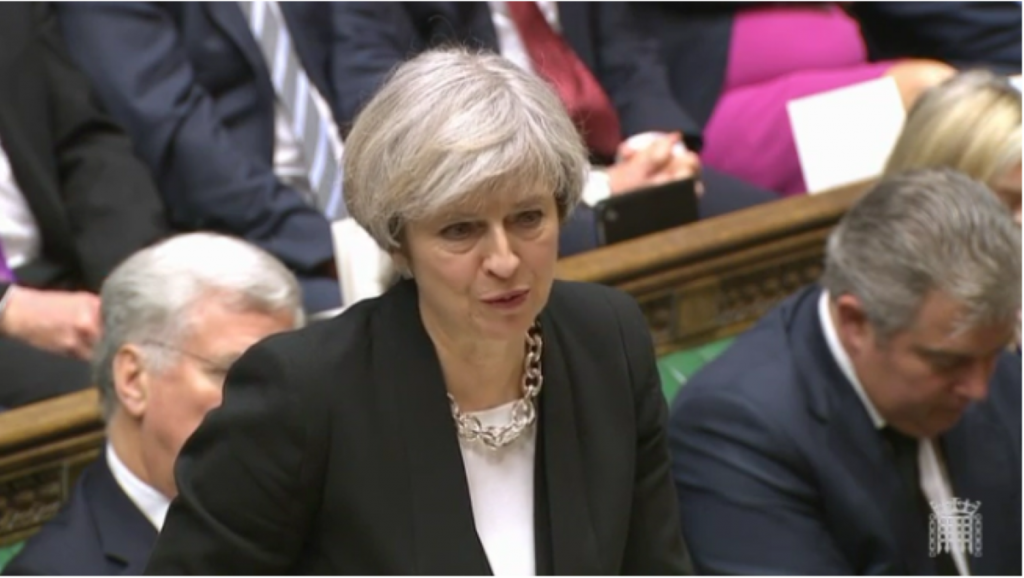One of the reasons senior Tories kept Theresa May in place after the general election was to prevent Jeremy Corbyn becoming prime minister. They couldn't have made that outcome more likely if they'd tried. The prime minister is a recruiting sergeant for the Labour leader. She provides more reason for people to vote Labour than any policy he could possibly invent.
The Tory leader gave an interview this week which was startling in its stupidity. She was asked if the decision to call a snap election was a factor in her performance. "I think it was, because by definition in a snap election you've not been able to prepare people for it." This was quite remarkable. The prime minister seemed to be admitting that she had created the conditions for her party's failure. But it wasn't a mea culpa. It was spoken of as if it were the wind – a fundamentally unchangeable element beyond her control.
She then went on to complain about the lack of emphasis on "people coming together for debates during election campaigns", despite having refused to debate her opposite number herself. It's as if she runs around with a bag of punchlines and encourages everyone to make the jokes.
The interview sparked precisely the kind of headlines you'd expect, but it's worth going past the ridicule and thinking about the kind of mind which would have said these things. It is one which is entirely incapable of self-criticism, one which simply isn't alive to what is happening around it. You got that sense again this week when she made a speech defending the free market without demonstrating a sufficient understanding of where it was failing. She's tone deaf, she comes across badly, she's not intellectually engaged with her circumstances and at the end of it all, she doesn't even seem very nice. She is a gift to Labour.


The Labour conference this week had its share of disagreements, on Brexit and anti-semitism mostly, but it was one of the most euphoric gatherings of its kind for years. The party feels it is soaring and Corbyn has full control.

It would be churlish and absurd to pretend that none of that is about Corbyn. Clearly, the authenticity of his personality helps. Quite probably, the lack of professionalism which many political commentators criticised is interpreted by many voters as proof of his anti-establishment credentials.
It would also be superficial to ignore the political underpinning of this, the way that systemic market failure leading up to, and following on from, the financial crash have opened a door to a much more radical political offering on the left.
But Corbyn supporters should not discount May's dire performance from their election result. They have the supreme advantage of running against a politician who seemingly has no redeeming features, be they moral, strategic or presentational.
This might not always be the case. The Tories can change leader, and they are likely to do so once May's usefulness as a human shield over Brexit has been used up. Admittedly, none of her potential replacements – people like Philip Hammond, David Davis, Amber Rudd or Jacob Ress-Mogg – are very impressive. Even Boris Johnson's star seems to be on the wane. But replacing a leader can offer the appearance of revitalisation to a government, as John Major – not exactly the most inspiring of politicians – showed when he went on to win a general election.
Not so long ago, Corbyn was the butt of a thousand jokes in Westminster drinking dens. Now he is soaring above those who once made fun of him. But if he has a spare moment he should send the prime minister a thank-you letter. He has much to be grateful to her for.
Ian Dunt is the editor of Politics.co.uk. His book – Brexit: What The Hell Happens Now? – is available now.
The opinions in politics.co.uk's Comment and Analysis section are those of the author and are no reflection of the views of the website or its owners.









